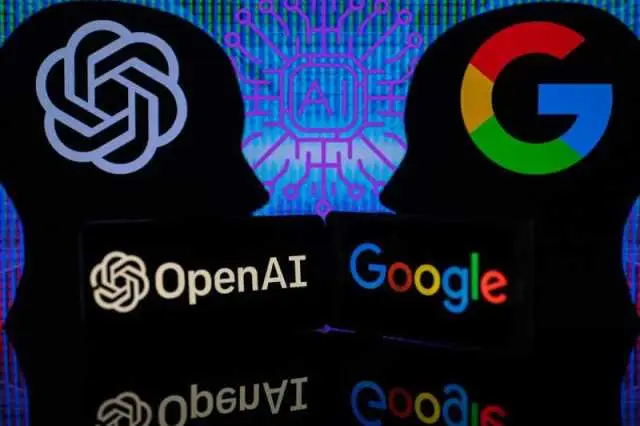GitHub has changed! Starting today, it's no longer independent. No longer the platform built for developer freedom, it's become part of Microsoft's AI agent factory. The CEO announced his resignation and is leaving to start his own business. Finally, an era has come to an end.
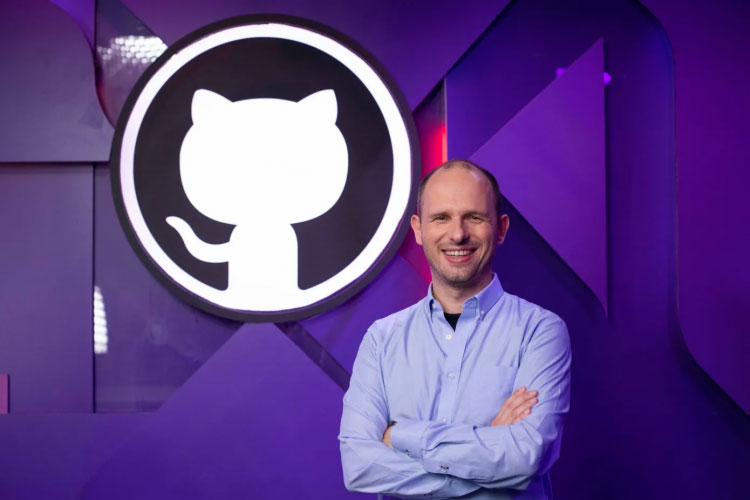
GitHub CEO Thomas Dohmke suddenly announced his resignation and revealed that GitHub will no longer operate independently, but will be fully integrated into Microsoft's newly established CoreAI engineering group.
Microsoft will also not be searching for a new CEO for GitHub.
In short: GitHub is no longer an "independent" company.
For the first time since Microsoft acquired it for $7.5 billion in 2018, GitHub has lost its "subsidiary" status and become part of CoreAI.
Dohmke will stay on until the end of the year to assist with the transition, then relaunch his business.
CoreAI, led by former Meta executive Jay Parikh, aims to build an "AI agent factory" for businesses and developers. This sends a significant signal: GitHub's independence has officially been lowered, and the world's largest code hosting platform is becoming Microsoft's "arsenal" for the AI era.
◆ GitHub will become part of the AI factory
GitHub CEO Thomas Dohmke announced his departure from the position.
What will become of GitHub without a successor CEO? A memo leaked by foreign media indicates that Microsoft will directly restructure its management structure from top to bottom!
Going forward, GitHub will be managed by several Microsoft executives:
- Julia Liuson, head of Microsoft's developer division, will oversee GitHub's revenue, engineering, and support;
- Mario Rodriguez, GitHub's chief product officer, will report to Asha Sharma, Microsoft's vice president of AI platform.
The driving force behind this major integration is Jay Parikh, head of Microsoft's CoreAI team and former Meta executive.
He boasted early on, "I hope our platform will become the AI agent factory for every company and organization."
In other words, GitHub will no longer be just a code hosting platform, but Microsoft's proprietary "AI agent pipeline."
Looking back this year, the intentions behind Microsoft's series of actions are clear.
First, Microsoft deeply integrated OpenAI's Copilot into GitHub. Now, Microsoft has tightened its control, absorbing GitHub directly into its AI division.
This series of actions is intended to transform GitHub into more than just a place to write code, but into Microsoft's AI training arsenal.
◆ Seven years after being acquired by Microsoft, GitHub has finally reached this day.
Since being acquired by Microsoft in 2018, GitHub has maintained a relatively independent operation.
But its position in Microsoft's overall strategy is becoming increasingly important—not only as a key platform for attracting developers to Windows and Azure, but also as a vital component of Microsoft's AI tool ecosystem.
In his resignation statement, Dohmke said: "From mobile development tools, to participating in and driving the GitHub acquisition, to becoming CEO and leading GitHub into a new era of Copilot and AI, it has been an unforgettable journey."
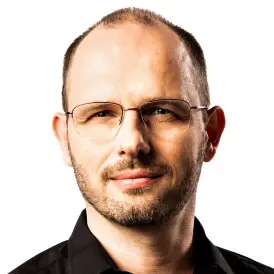
However, his entrepreneurial spirit began to call again. He decided to leave GitHub and start a business again.
Dohmke said he left GitHub when it was "at its peak":
GitHub now boasts over 1 billion repositories and branches, and boasts over 150 million developers. Thanks to their tireless efforts, GitHub Copilot has ushered in the biggest transformation in software development since the advent of the personal computer.
Seven years have passed since Microsoft acquired GitHub. Initially, the deal was seen as a sign of Microsoft's shift from "resistance" to "embracing" open source. Now, with the rise of generative AI, GitHub has become a core workplace for developers worldwide.
For Microsoft, GitHub is at the forefront of its "Copilotized" AI strategy—embedding its AI assistant in nearly every product.
Copilot has evolved from a simple yet magical autocomplete tool to a conversational programming assistant with Copilot Chat & Voice, and now to the ability to review and fix code, and build full-stack applications with GitHub Spark.
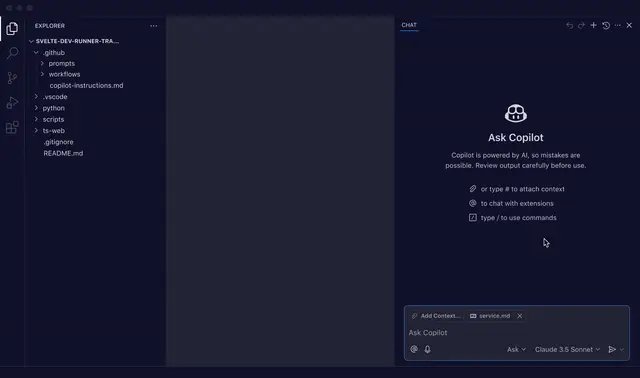
Today, GitHub Copilot is a leader in the most successful and thriving market of the AI era, with over 20 million users.
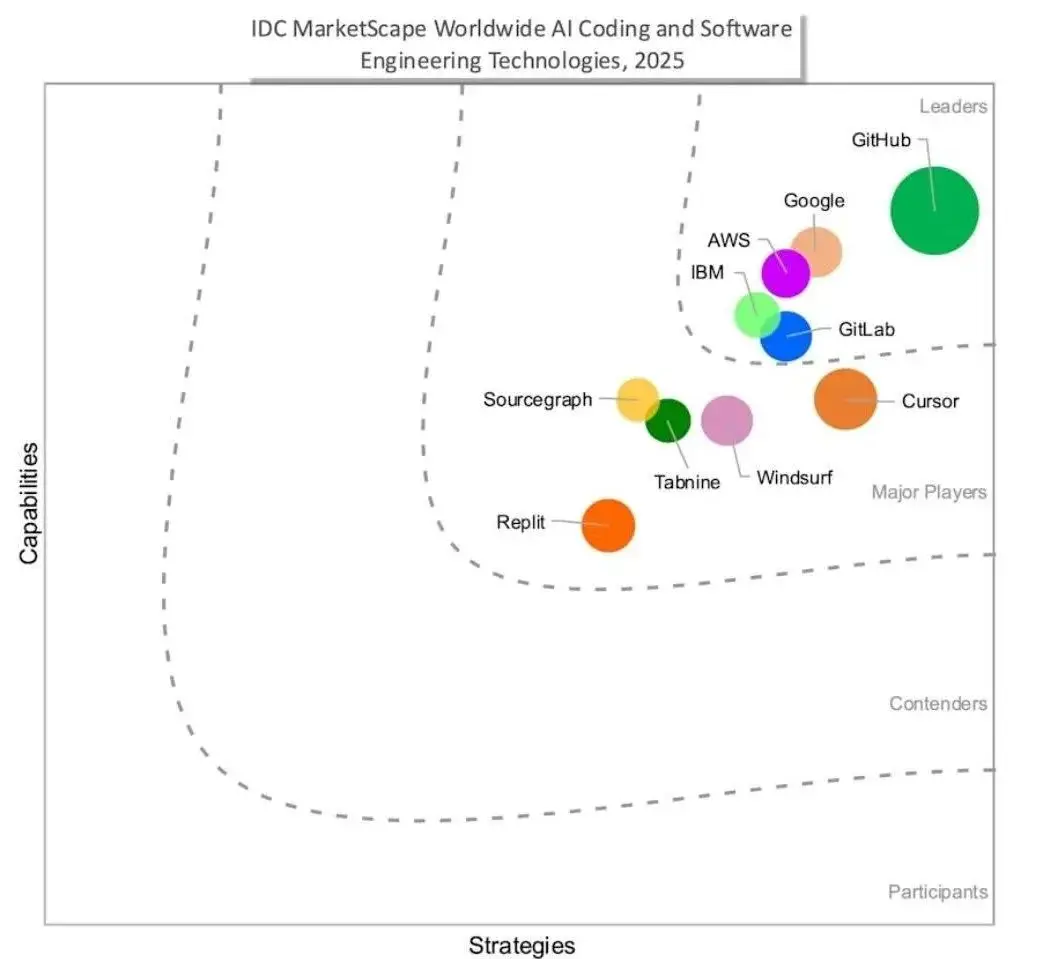
GitHub was named a 2025 AI Coding and Software Engineering Technology Vendor Leader by IDC.
Over the past year, it partnered with Anthropic, Google, and OpenAI to become Microsoft's first multi-model solution.
GitHub has provided a free version of Copilot to millions of users and launched a synchronous Agent mode in VS Code and native asynchronous coding Agents in GitHub.
What will the future of developer tools look like? Microsoft's answer is—AI first.
In short, the future of GitHub is likely to look like this:
- Copilot offers deeper control over workflows
- Automatic code generation is no longer an auxiliary role, but a primary one
- GitHub and Azure become part of Microsoft's AI tool loop
In other words, in the future, all developers may no longer be coders, but rather overseers of AI code.
◆ A sudden arrival or a formidable retreat?
As early as 2021, GitHub's reporting structure changed.
At that time, former CEO Nat Friedman stepped down, and Dohmke began reporting to Julia Liuson, head of Microsoft's developer division. Earlier this year, with the formation of the CoreAI team, Liuson shifted his reporting to Parikh.
Just last week, Dohmke spoke with Copilot, "vibe coding," and the future of AI.
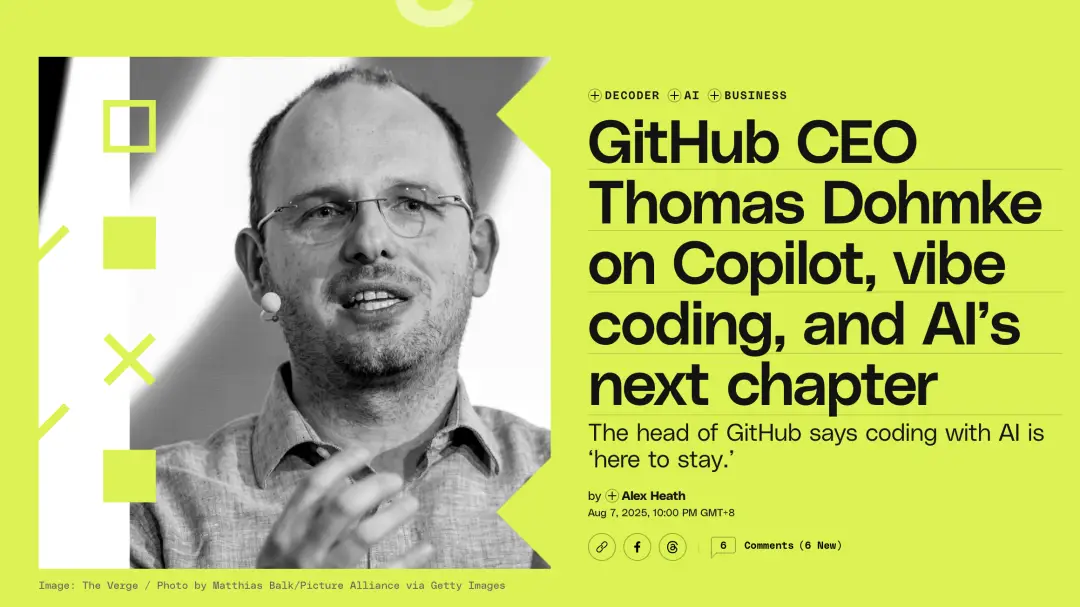
At the time, he was still reflecting on the competitive landscape and GitHub's role in the future of software development. Now, he's leaving, perhaps to build new projects that could compete with Microsoft AI.
◆ CEO's Farewell Letter
In this farewell letter, Thomas Dohmke wrote with deep regret:
Over a decade ago, after my startup was acquired by Microsoft, my family and I resolutely moved from Germany to the United States.
In the years since, I've had the privilege of working with many exceptional people, and together we've shaped GitHub.
As a remote-first organization across the globe, I'm incredibly proud of everything we've accomplished.
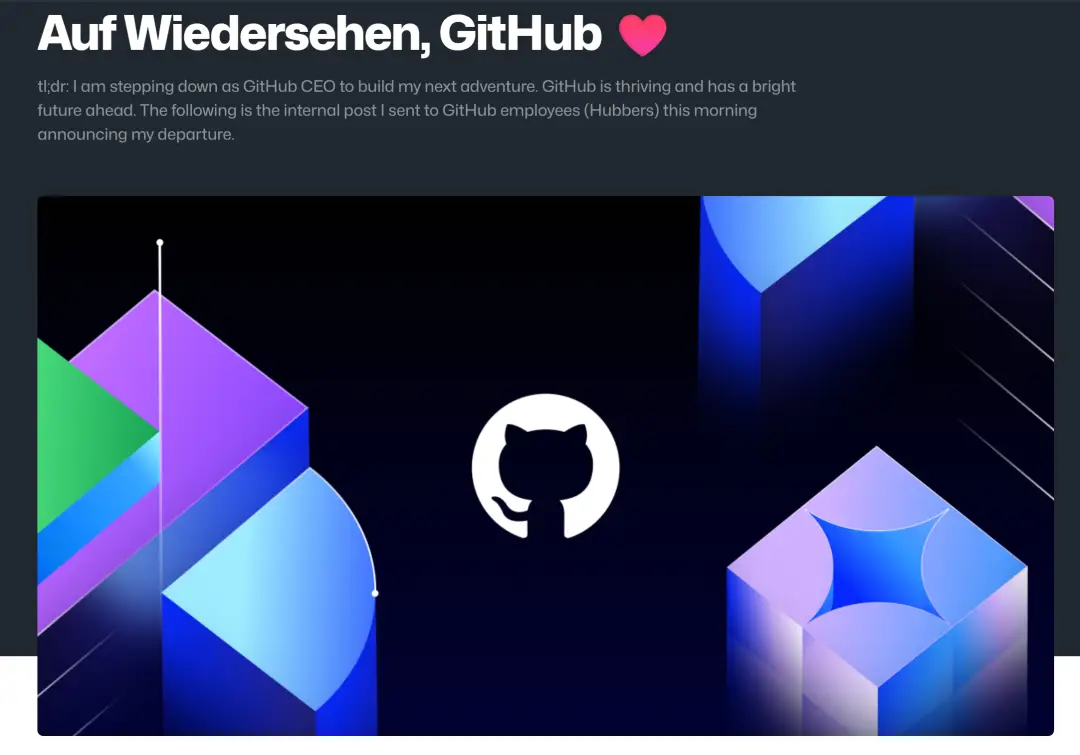
Thanks to your tireless efforts, GitHub Copilot has brought the greatest revolution to software development since the advent of the personal computer. While I'm proud of our hard-earned business growth, technology built purely for its own sake is nothing but vanity unless it serves a greater purpose.
We can only succeed if the world succeeds. By ushering in a new era of developer AI, the world will soon have a billion developers, empowered by billions of AI agents, each transforming human ingenuity into a new software goldmine.
When that day arrives, we'll know where the journey begins: GitHub.
Thank you, Hubbers. It's been an honor to be your colleague and leader, and I will cherish the wonderful time we've shared.
Goodbye, and thank you to all the fish.
◆ The End of an Era
It's fair to say that GitHub's transformation is far more than a simple personnel change; it's a complete shift in the paradigm of software development.
Back then, Bill Gates hoped to change the world with Microsoft's software. Now, Microsoft hopes to transform the very act of writing code with GitHub and AI.
Developers, too, have had to adapt to this new world.
If you still think GitHub is a programmer's paradise, this transformation may make it impossible to go back.
Reference Links:
https://www.axios.com/2025/08/11/github-ceo-dohmke-step-down
https://github.blog/news-insights/company-news/goodbye-github/


